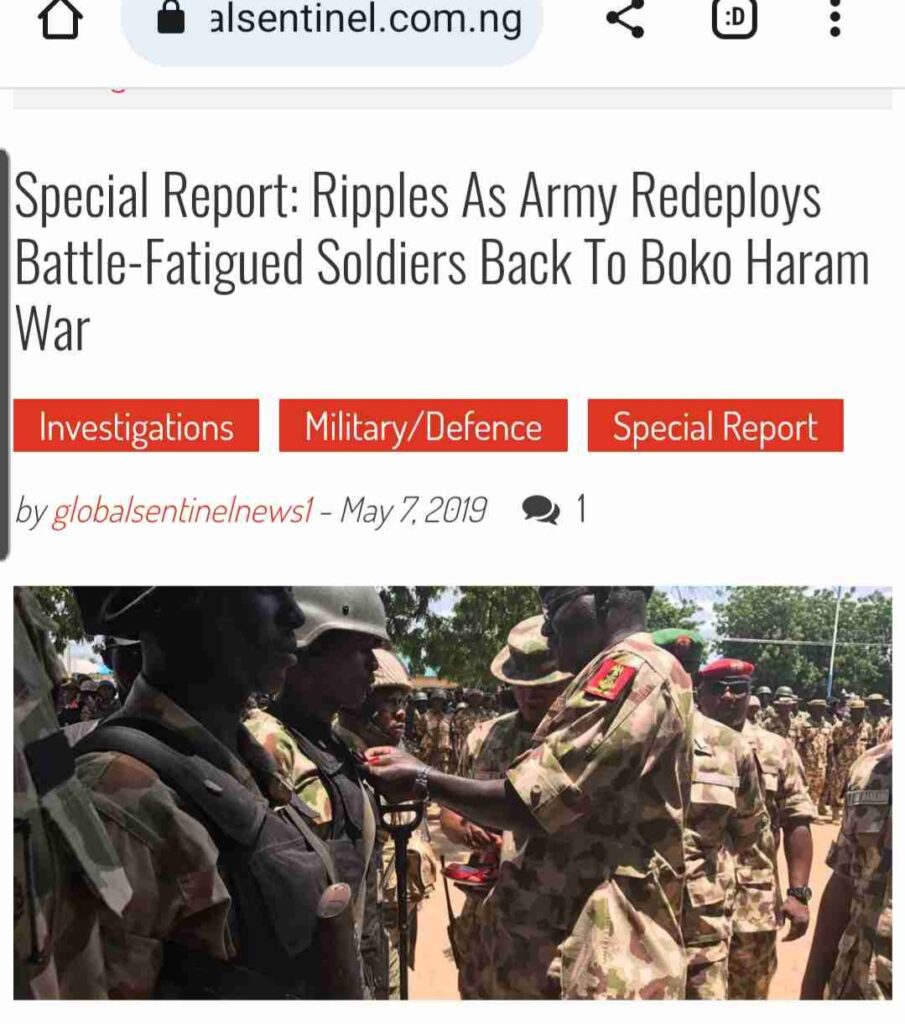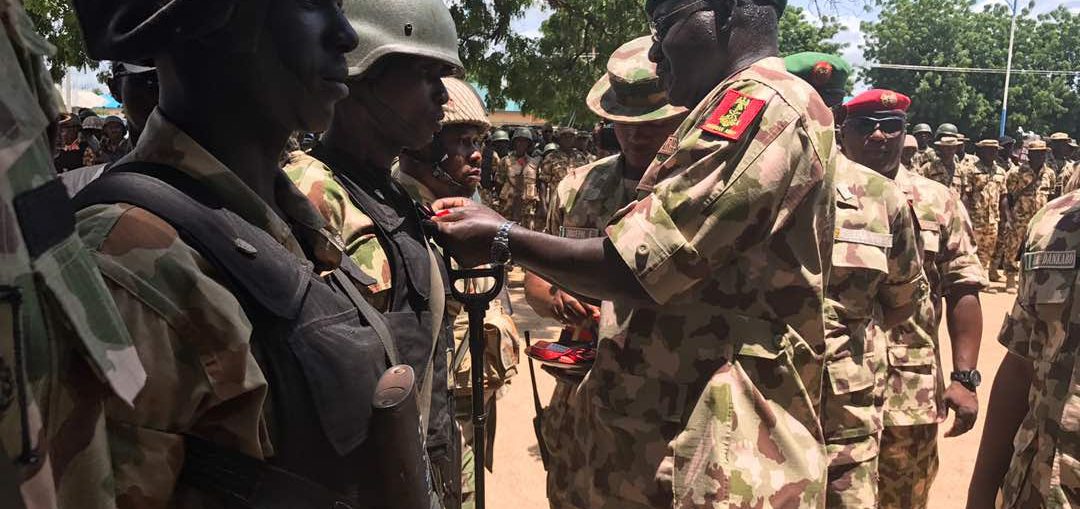•Traumatized soldiers cry out for help
•Allege favouritism over shielding of some soldiers from battle
•Affected officers, soldiers should approach their Corps Commanders–DHQ
Senator Iroegbu
The latest decision by Nigerian Army to send about 388 soldiers most of whom were only rotated few months ago, back to the battlefront in the ongoing counter-terrorism and counter-insurgency operations against Boko Haram terrorists in the Northeast, is causing so much disquiet in the affected units and formations.
Global Sentinel(GS) investigations revealed that some of mostly infantry soldiers to be redeployed were recently relieved of fighting duties having been at the theatre of operations between three to five years, which is beyond the normal rotation timelines and maximum duration of two years.
While the Defence Headquarters (DHQ) has asked the affected soldiers-if the allegations are true-to take up the issues with their Corps Commanders, the Nigerian Army is yet to respond.
But the redeployment of the 388 soldiers was contained in a circular with attached list sighted by GS dated February 27,2019 and signed by Brig-Gen. KI Mukthar on behalf of the Chief of Army Staff (COAS), effecting the ‘Posting of NA infantry soldiers into Lafiya Dole’.
Part of the circular reads: “I am directed to convey approval for the posting of above names SNCO and 387 others as contained in Annexes A and B to unit indicated against their names as received vide reference A.
“Information addresses are to release/receive affected soldiers immediately while HQ CAR please requested to process and issue posting authority accordingly.”
But this did not go down well with the soldiers mostly from Battalions 93-152 who have been battling Boko Haram and ISWAP to exhaustion for close to five years.
The affected soldiers who spoke on the condition of anonymity lamented about their ordeal, saying that they are already traumatised from the scars of war and also battle weary.
They noted that while they are yet to fully recover from the the physical and psychological effects of their extended battle against the terrorists, those who have not even had a taste of the war are never redeployed.
“We are weary and traumatised already as some of us dat just came back from Maiduguri and they are posting us of back to Maiduguri again. We are still battling it. We spent four years, five months in Maiduguri and they promise us that who never go must go before thinking to take us back again and many of our soldiers here never one day go to battle,” the soldiers said.
Responding to inquiries, the Director of Defence Information (DDI), Col. Chukwuma Nwachukwu, explained that the Nigerian military do respect the policy of troops rotation.
Nwachukwu also explained that the Nigerian Army usually rotates according to units and formations, adding those that might have been affected by lack of rotation or multiple redeployment meant that they were not originally deployed as part of their original units and formations.
He however, advised those affected to take up the issue with their Corp Commanders who may not be aware of such multiple redeployments.
“Rotation is not on individual basis but done by units. If there is any case like that the affected officers and soldiers should report to their Corps Commander to take up the case,” he said.
GS also made inquiries from the Director of Army Public Relations (DAPR), Col. Sagir Musa, who promised to respond but haven’t done so as the time of this report.
Allegations of favouritism, Godfatherism
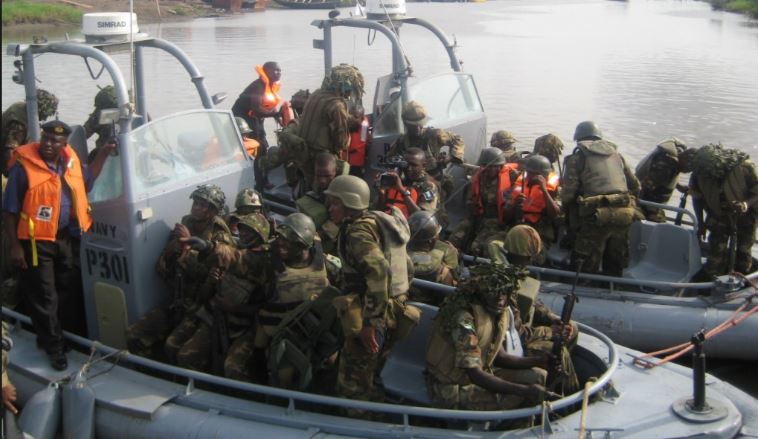
There was allegations of favouritism and Godfatherism whereby some soldiers are shielded from battle with others constantly used to either exhaustion or death.
The sources lamented: “Why some have not crossed even Adamawa for one day and we are being over used. So many soldiers in out unit have not gone to Maiduguri and yet they are still posting us back. In fact many soldiers in many units have not go to Maiduguri. It sound like some of us don’t have family.”
In a similar investigation by THISDAY in 2018, some officers and soldiers accused the military authorities of nepotism and preferential treatment, saying favoured officers and soldiers were posted to the Niger Delta (regarded as a cash-cow) while the not so favoured are allowed to engage in a life or death mission in the North-east with slim hope of being rotated as at when due.
He said, “Do you know that all the units in the Niger Delta could have been used to rotate the troops but not so because these units are now reserved as a settlement for the boys. The former Guards Brigade commander is the GOC Port Harcourt and all the godsons are the commanders in Nigeria Delta.
“I am telling you that Niger Delta has turned to settlement ground and openly at that… This is so unprofessional to have areas for the boys to go and make money. This is unbelievable my brother that to be a CO there, you have to be recommended by politicians or some Ogas to the COAS…..and that is why the units there can never be touched. While those in the North East are under immense battle stress those in Niger delta are making money from oil companies duties and bunkering.”
Lack of record-keeping, data of personnel
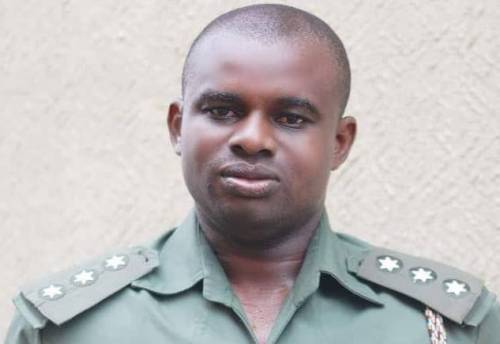
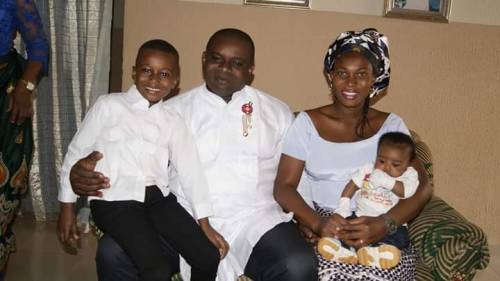
Findings have also revealed what seems to suggest that the Nigerian Army does not keep nor have accurate records about its fighting Force in North East.
This was evident from the number of missing soldiers that could not be accounted for until their families start making inquiries about them, the latest being those that were either killed or went missing after the Metele attacks in Borno State in November 2018.
The most popular case was that of Captain Ogbonna Akpa Nwota, whose family raised the alarm over his whereabouts after the Boko Haram attack in Metele. The silence of the Army for a long time over his fate even raised the suspicion if they were aware of the names and number of soldiers missing after the attacks.
“The pain the family and his loved ones have gone through over the past two months is better imagined than experienced. The silence of the military authorities is sheer wickedness, to say the least! Captain Nwota and no soldier or the family deserve to be treated this way,” Dr Laz Ude Eze, a family friend, said.
Responding to GS inquiries then, one of the senior Army Generals admitted that why the cases of missing soldiers were not treated with the urgency it required was because of the poor record keeping of the military.
The officer disclosed that while Boko Haram destroyed the records of the deployed officers at the military base during the deadly attack, Army Headquarters did not have a corresponding data to verify.
In the same vein, some of the officers and soldiers who spoke on the condition of anonymity over the latest development, said these apparent mistakes of overuse and multiple redeployment to the theatre of war emanates from the fact that the Nigerian military especially the Army lack record keeping culture.
“As you will see from the lists of deployed soldiers in the affected units are the ones that were just rotated from the North East. Most of us in this book (list of 388 soldiers) have gone to Maiduguri before. As am talking to you today Army don’t have record at all. I know Army will deny this if you ask them,” a personnel admitted.
Dearth of experienced fighters blamed
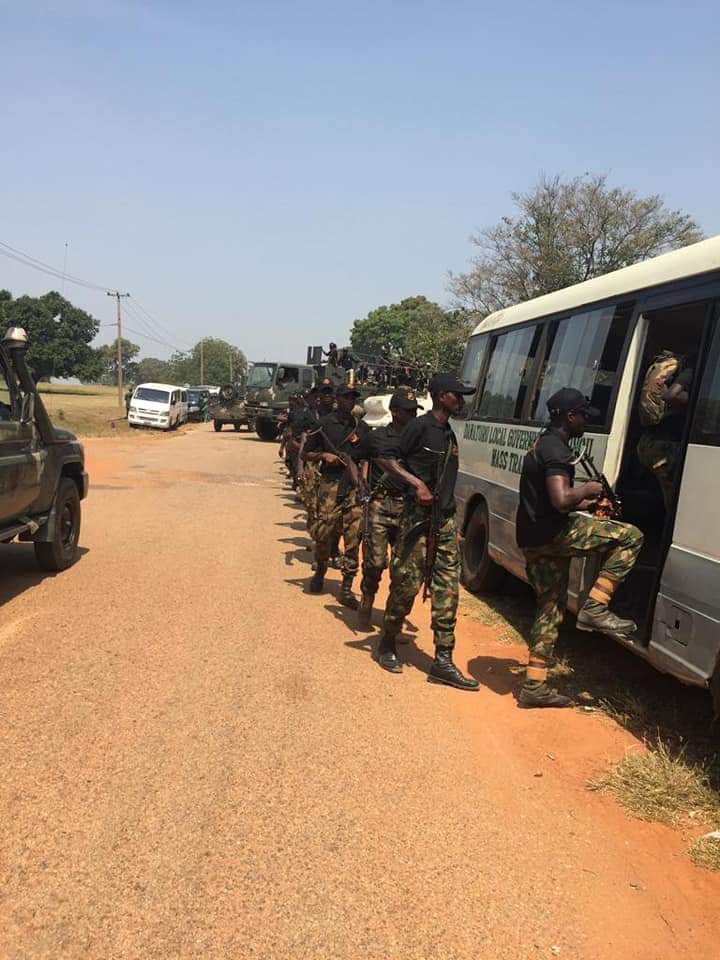
Reports also indicated that the Nigerian Army are in dire need of experienced fighters, especially the infantry soldiers because of the exacerbating internal security operations across the country.
The then DDI, Brig-Gen. John Agim (rtd), while explaining why the military had to keep battle-fatigued soldiers in the battle against Boko Haram when there were available reinforcements and provision for rotation hinted a lack of experienced fighters. Also, for the fact that troops were deployed in about 34 of the 36 states of Nigeria for various internal security operations did not help the case of the war weary forces.
Agim stressed that experienced fighters were constantly deployed and rotated in and out of the North-east because of the intense involvement of the military in the vast internal security operations in the country.
“They (soldiers) want to rest, where would you get soldiers to take over from them now?
“We have soldiers that are involved in operations, all over the country. As they are finishing from this operation they are landing in another one. It is therefore, not as if they are keeping some soldiers somewhere,’ ” he said.
In extensive response as contained in THISDAY report on June 3, 2018, the ex-Defence Spokesperson stressed that all the available officers and soldiers were already engaged in one operation or the other, across the country, implying that those posted to the North-east could not easily be changed or rotated.
He also noted that the fact that the military is currently short of personnel, especially the fighting forces, explaining that newly recruited soldiers were not experienced enough to be deployed in the heat of battle against insurgents and terrorists.
Speaking on the extended duration and constant rotation of the same set of soldiers, Agim said: “ So what is the duration of deployment they are talking about when we are just trying to increase the population of the force? So even when you are eventually redeployed from there, you are going to go for another operation, because there is no part of the country that we don’t have something going on.
“As you are talking about North-east, are we not having operation in the North-central? Are we not having operation in the South-south? I don’t know of any place where soldiers are not in operation. Now particularly in the North-east, those people who are there receive promotion every other year. Soldiers receive those kind of promotion because of the operation that is going on there.”
Agim further stressed that the military involvement in the internal security operations across the country was responsible for seeming lack of frequent rotation rather than the accusations of selective deployment.
He noted that no individual officers and soldiers were being targeted for deployment as they were being drafted in units. He cited the example of the then Operation Last Hold against Boko Haram in the North -east where troops were drawn from various units and formations.
He also noted that this lack of extra experienced fighters to meet up with the increasing internal security threats was the reason why Nigeria has not been deploying for peacekeeping operations.
To tackle this challenge, he said the armed forces had intensified recruitment drive across the services and would be drafted to relieve others.
He said, “So we don’t have people now and we are rotating and recycling across board. Those of them who were relieved from the North East, were later sent to Niger Delta. So we have people that are just coming in and going out and because of that we have refused to make the normal contribution to the United Nations. Like you used to hear about many battalions being flown outside the country, but now we don’t have such. We have only one battalion that is outside the country.
“The military have been recruiting more now, but if they are recruiting more, are you going to carry the recruits that just come from depot? To do what? They have already established more Brigades and Divisions. They have already done that, so its something that will have to be a gradual process to make this kind of impact.”
Possible, rising cases of Post-traumatic stress disorder
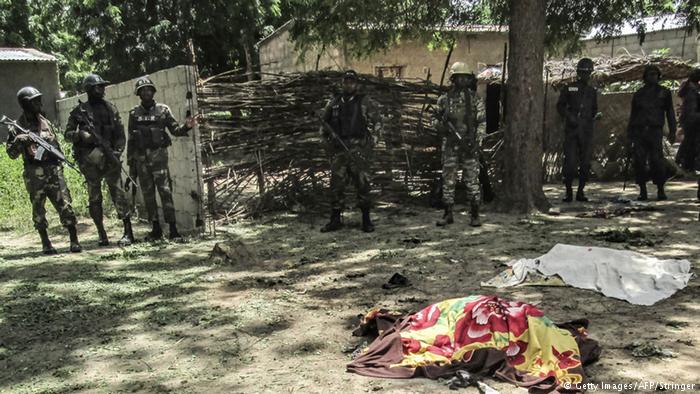
Even though there are no official figures and professional verification about the emotional and psychological impact of the war against terror has had on the Nigerian troops over the years.
Some of the soldiers who spoke to GS referenced the fact that they are traumatised coupled with the fact of constant complaints about their welfare and morale.
They noted that constantly being in the battlefield for long period of time without seeing their loved ones have been hard.
Also before they were finally rotated last year, most of the officers and soldiers who spoke on the condition of anonymity, decried alleged lack of care and inability of the top military command to ease their burden of fighting in the battlefield for a long time.
They narrated how their appeal to be given a rest since the war was taking its tolls on them due to fatigue and trauma had fallen on deaf ears.
It was reported that the alleged sexual harassment and rising cases of rights violations by officers and soldiers could be traced to war-induced trauma and disorientation.
One of the soldiers was quoted to have said, “We came to the theatre on the 17 October 2015 but they have never rotated since then, especially those of my colleagues in the 156 Task Force Battalion in Allagarno under the 29 Task Force Brigade.”
The source further narrated how some of the units had been abandoned to wallow in battle fatalities while some other units were being given special treatment and rotated as at when due.
In the same vein, some soldiers lamented how the deaths of their colleagues and lack of proper treatment for the injured had left them demoralised.
“What I can tell you is that the Army has not been fair and ready to treat our soldiers who are wounded in battle. In some of the worst case scenario, we are the ones treating our self with our money,” a soldier disclosed.
Buttressing this fact, a soldier also narrated how the gunshot wound he sustained in the battle against Boko Haram terrorists was allowed to fester at the 7 Division Army Headquarters, until he was transferred to the Tactical Headquarters at Benishiek, Borno State.
The soldier said, “Up till now I cannot stand well. At a point I had to spend money over my health because Army denied me adequate treatment. All they did was to just drop me at the 7 Division Hospital without proper treatment.
Another soldier lamented before Buratai ordered their rotation, “They have kept changing other units but those of us from the Infantry under 3 Division have never been changed. The information I am getting is that they will not rotate us until we will complete three years. Can you imagine that?”
A concerned officer who spoke on the issue wondered why fighting troops would be kept in the battlefield for over two years, knowing the dangers of fatigue and trauma.
According to the officer: “Ideally one year should be enough owing to battle stress. But a maximum of 18 to 24 months could suffice for a high intensity operation after which there will be high drop in their effectiveness.
“It’s really unfortunate and a huge failure 9f leadership.”
Against this backdrop, a recent book authored a former Deputy Director of Air Operations, book Air Commodore Abayomi Balogun (rtd) titled: ‘Nigerian Air War in Sierra Leone’, had at one of its core, the high rate of untreated cases Post-Traumatic Stress Disorder (PTSD) amongst Nigerian soldiers and veterans.
“A lot of the war veterans came back with various disabilities while most of them suffered from the silent injuries of war. To them, when the wars were over, a new battle begins”, Balogun said.
